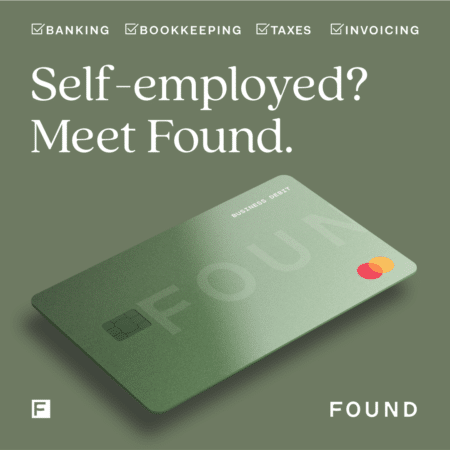Digitization has transformed nearly all sectors of life, including the employment industry. The traditional 9-5 jobs are no longer evidence of professional and career achievement. Individuals can now work remotely and advance their careers. This new work-life allows individuals to express their skills and contribute value to projects and businesses.
However, do you consider freelance jobs real work? Individuals are often at a crossroads regarding whether to include such experiences in their resumes. Others are still determining whether the experiences benefit their career development. This guide explains why you should always put freelance work on your resume. You will also learn how to implement such a strategy to create a winning resume.

Reasons to include freelance work on your resume
1. Expresses relevant work experience
Freelancing involves offering value to clients and businesses on your terms. Adding freelance work to your resume is equal to average work experience. It will further bolster your work experience and highlight your expertise in the field the employer wants.
2. Bridges employment gaps
Securing a 9-5 employment takes time and effort in the present job industry. The competition causes unemployment for some individuals. This is where freelance jobs come in. Whether you are working as a side hustle or a full-time gig, including freelance work helps to bridge the employment gaps in your resume and further bolster work experience.
Adding freelance work showcases your excellent commitment to personal and career development. It adds expertise to your field and speaks volumes on your professional journey. It also highlights your adaptability, resilience, and goal-focused enthusiasm.
3. Displays versatility
Remote work often demands flexibility and adaptability from individuals. Numerous projects will require creativity and the ability to tackle unique challenges along the gig. Employers value such individuals who show great versatility and adaptability.
Adding freelance work to your resume is an excellent advantage for portraying remote work experiences. It displays your ability to deliver outstanding results across varied settings. It shows your expertise in digital tools, communication applications, and project management software. For example, jobs that require graphic designers would love employees who have worked in a remote job setting, as they are more adaptable to numerous work roles.
4. Shows entrepreneurial skills
Soft skills are now becoming a significant drive for employers while searching for their perfect applicant. Having technical skills is now the bare minimum. Employers love individuals who show entrepreneurial spirit and great initiative. The ability to successfully handle remote jobs portrays entrepreneurial spirit.
The traditional workplace involves lots of peer relationships and supervision, but freelancers show an added skill set of working independently. They portray the ability to take self-directed roles and be resourceful by themselves. Therefore, adding such freelance roles shows entrepreneurial skills.
How to Include Remote work to resume
1. Highlight your role perfectly
Start by pinpointing the exact role you played in the company. Provide an adequate job title like you would for conventional employment. Show that you worked as a freelancer by adding the word ‘freelance’ before the job title. For example, “Freelance Graphic Designer,” “Freelance SEO Manager,” “Freelance Backend developer,” etc.
2. Add the Clients you worked for
The Competitive Job market has created means for numerous desperate strategies, one of which is including imaginary freelance work in a resume. Recruiters often see through this and undergo thorough checks in applications.
Therefore, you must prove your authenticity by including the clients you worked with. This should come together with the role you played in the company. Although some clients prefer anonymity, as explained in their non-disclosure agreements (NDAs), you can find ways to reference them through formal requests.

3. Provide thorough details on the Job/work done
Explaining your work during freelance gigs is an advantage for successful applicants. Employers want to know your conventional roles rather than specific information on the results achieved. Use bullet points to highlight your numerous activities during the freelance work. Showcase, as best as possible, every role you played in the job done.
4. Showcase projects and objectives
Companies that allow remote work are usually goal-inclined. They split their calendar with specific objectives that workers are expected to clinch. Another resume-winning strategy is to include such projects and how you contributed. Ensure to add details like:
- Project goal and scope
- Timeline
- Your entire responsibility
- Skillset used
- Link to the portfolio if possible.
5. Include the results achieved
Blowing your trumpet in your resume’s freelance work section is not from pride but rather an advantageous point. Employers receive many applications for roles they advertise, and the only way to stand out is to prove your expertise ideally. Did you increase your company’s profit system by 20% after employment? Or, while working as an SEO manager, boosted their organic traffic by 30%? Make sure to leave such details with you. Instead, include all your successes in your resume.
Use bullet points to list all the records of accomplishment, key performance indicators (KPIs), awards, achievements, and positive feedback you got while working as a freelancer. Showcase any win for the client that you helped to achieve. The best strategy is to use numbers or statistics to highlight the positive results so employers understand the magnitude of your expertise.
Example of Freelance work section on resume
Freelance Graphic Designer (Contract), Sportnik, CO | 2019 – 2021
Created company flyers, posters, and social media designs for the football sports space, focusing on Twitter, Instagram, and Facebook.
- Successfully handled a broad portfolio of graphic design demands, including print design for the company’s products.
- Designed visually compelling graphics that caused a 20% increase in social media traffic and impressions.
- Displayed professional expertise in Adobe Creative Suite, including Photoshop, Indesign, and Illustrator, to create high-resolution flyers within set timelines.
- Engaged in transferred player reveal flyers for Twitter and Instagram, leading to a 23% increase in engagement and social media earnings.
Conclusion
Adding your freelance work experience to your resume is a great choice and a strong statement foretelling your expertise. It highlights your versatility in varied work environments and bolsters your professional identity. Freelance work strengthens your employment market value and provides an advantage in the present job competition. Whether you worked a part-time gig or full-time job, ensure that you include your freelance work section and position yourself firmly amidst the numerous applications.

Keep the conversation going…
Over 10,000 of us are having daily conversations over in our free Facebook group and we’d love to see you there. Join us!

